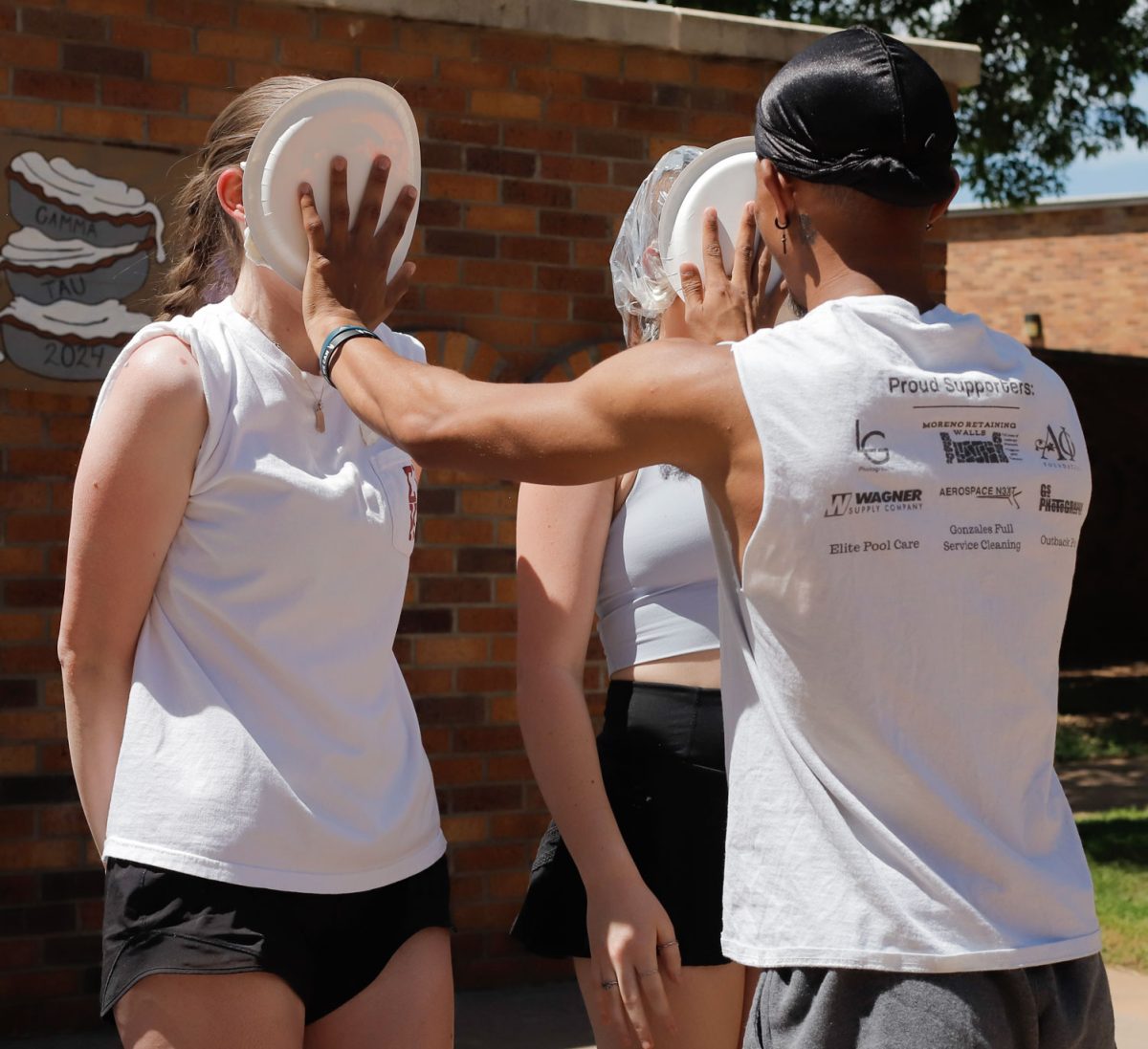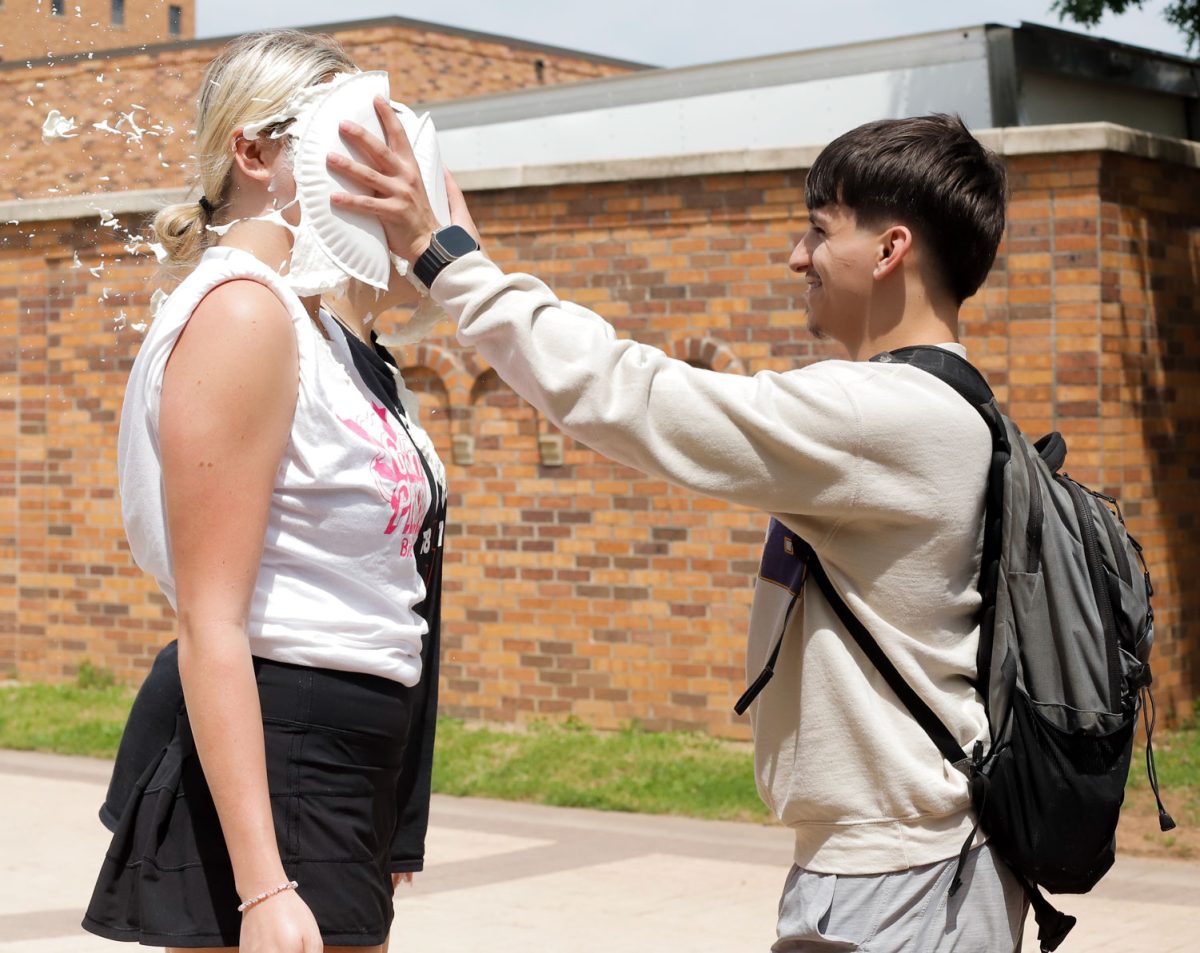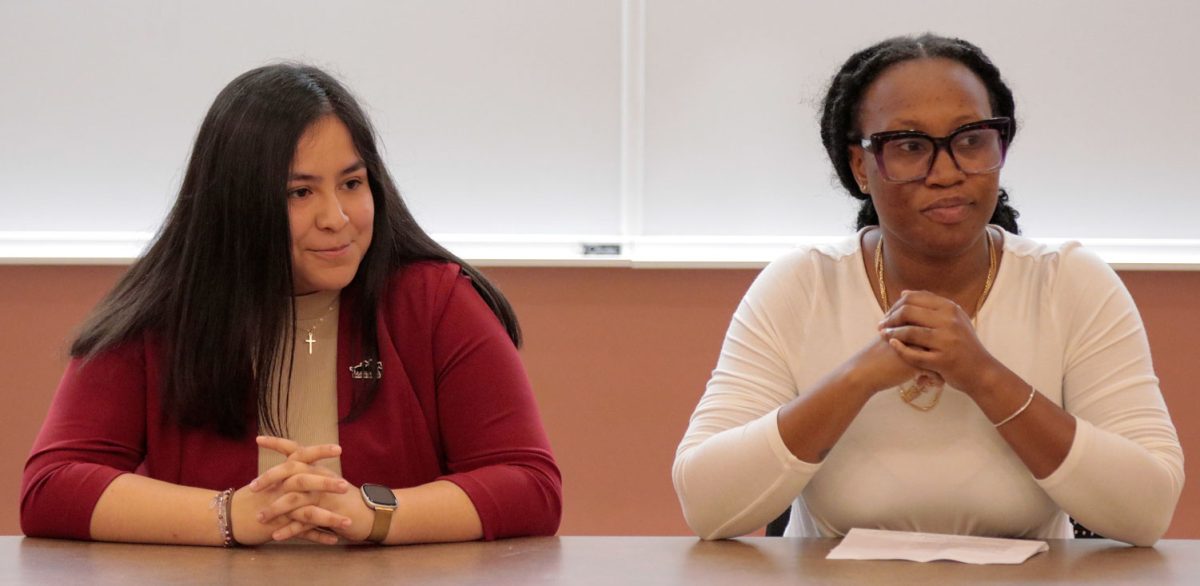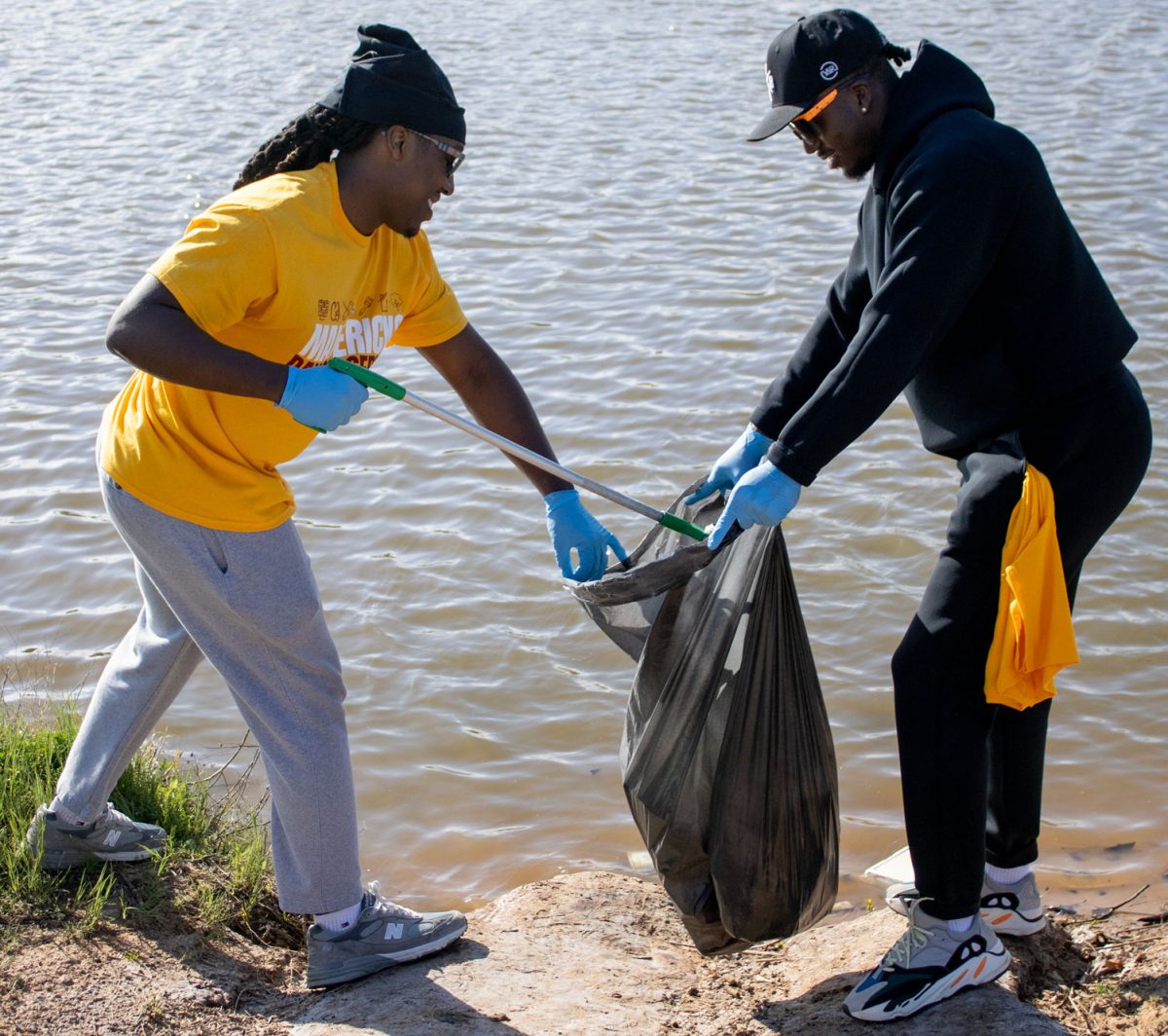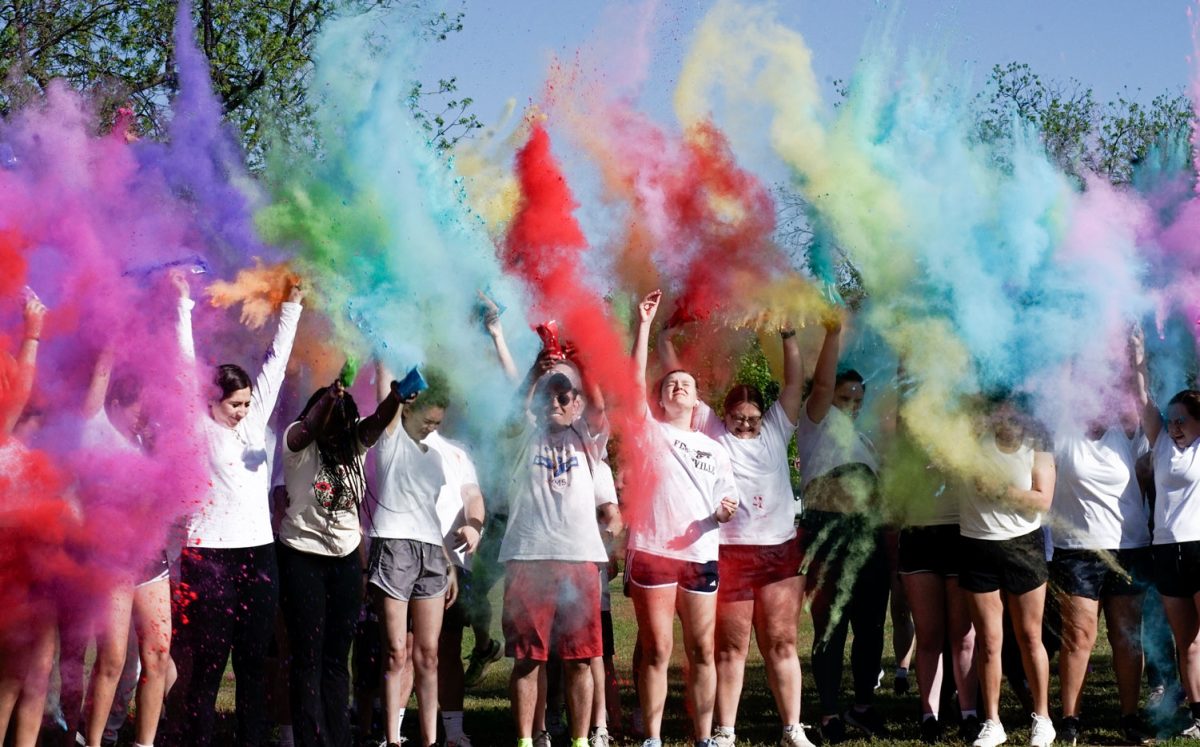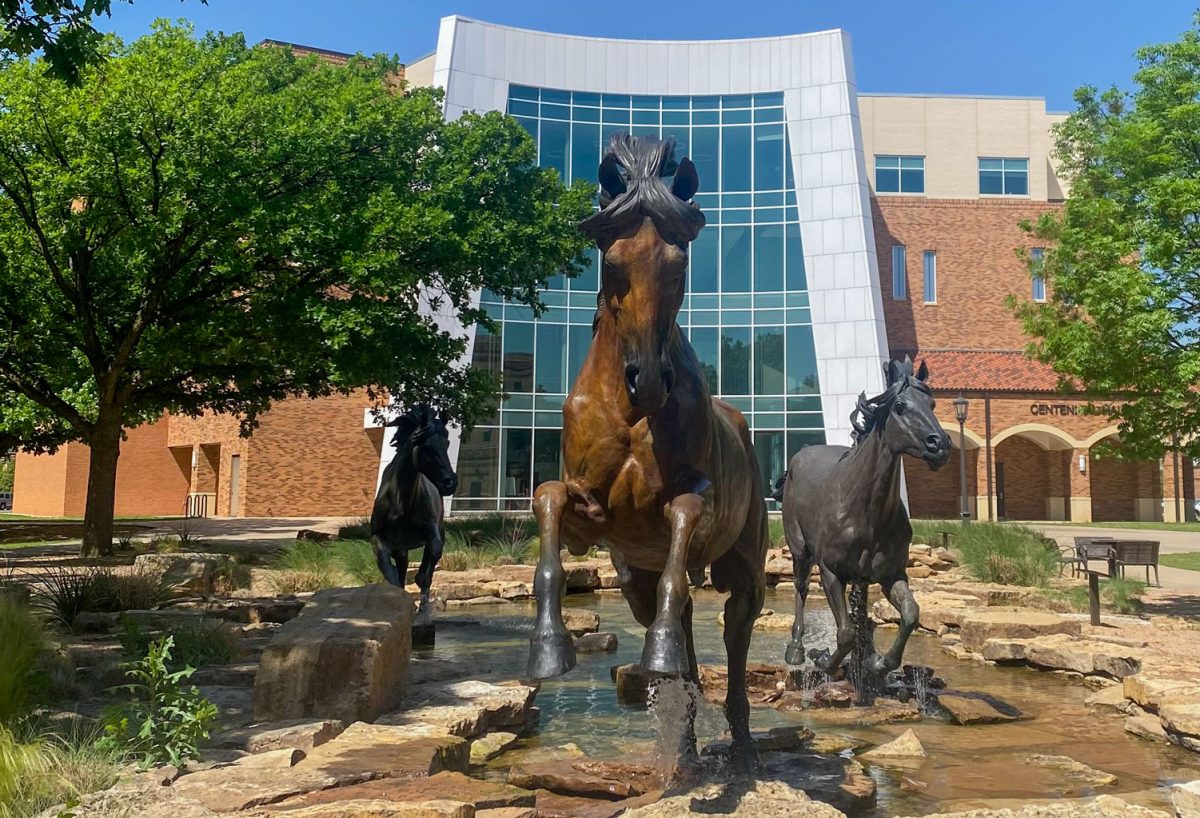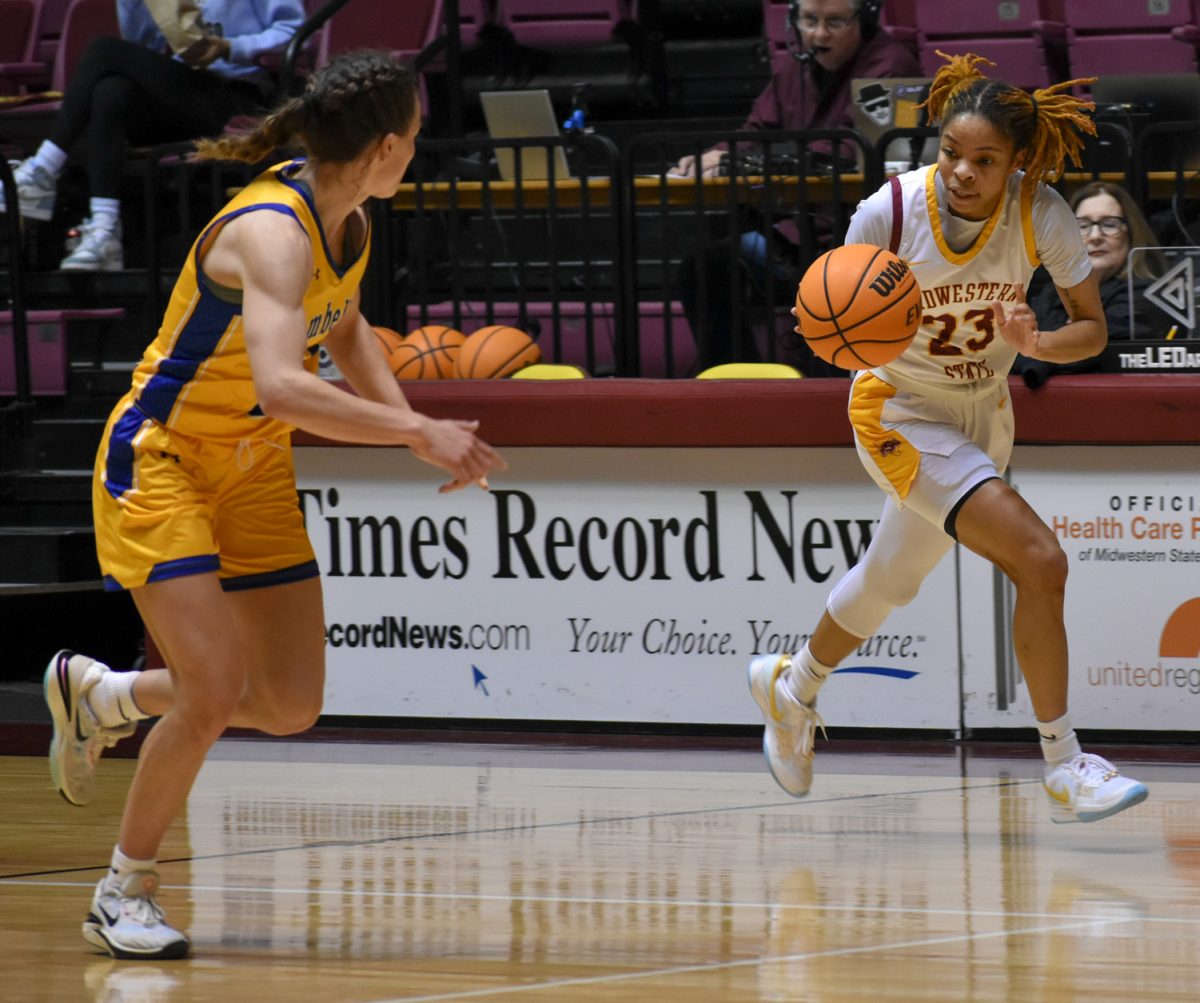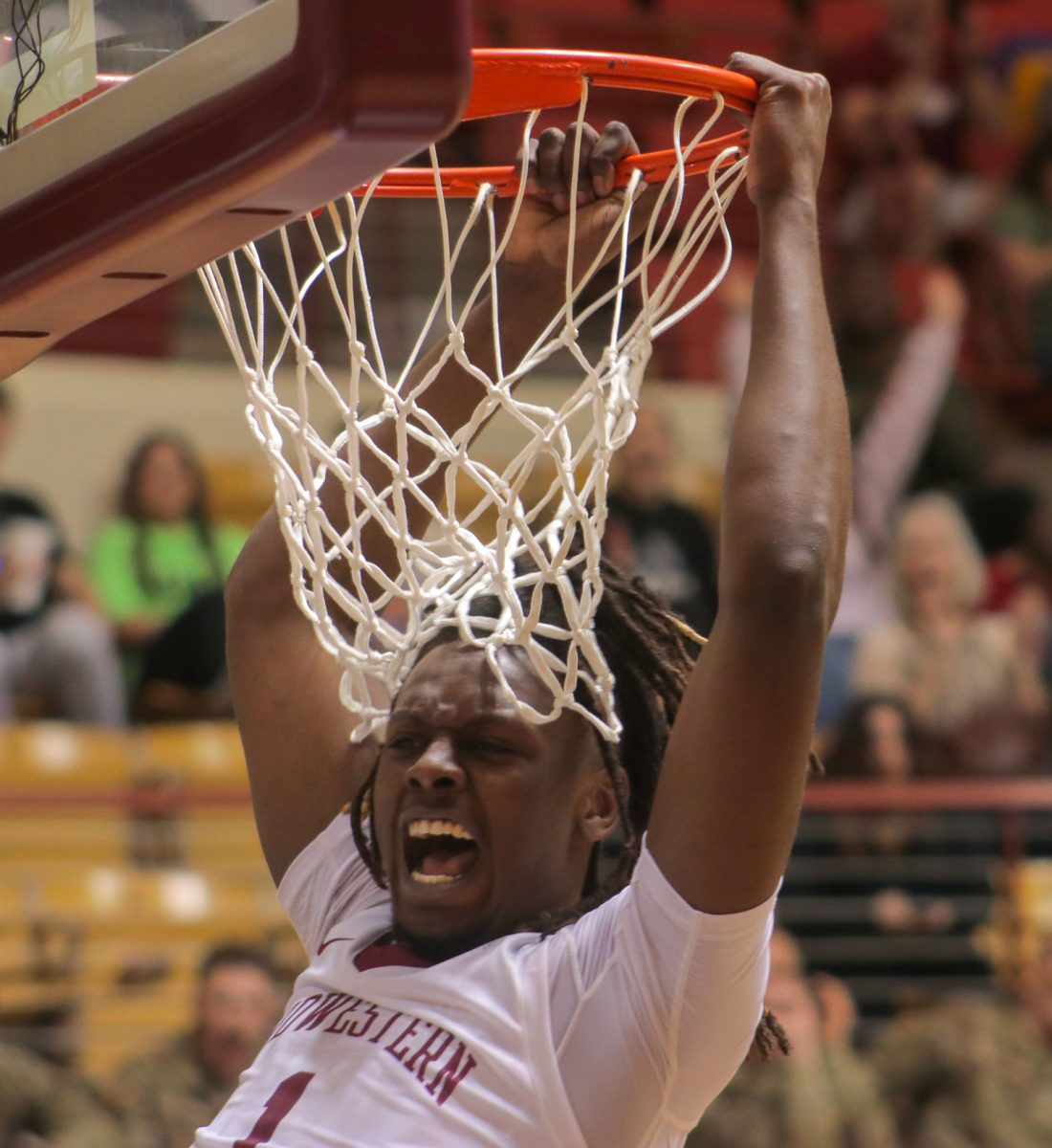MSU chapter of NAACP tackle the battle of the sexes by discussing gender and race issues and stereotypes
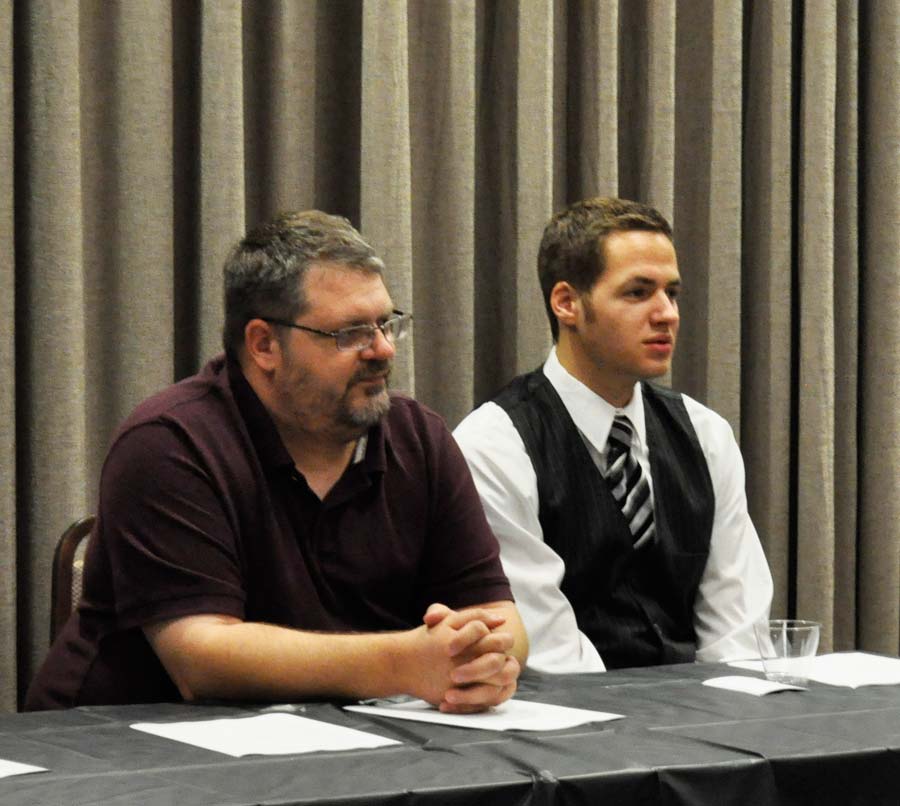
By Donace Wilkinson
Racial and gender stereotypes are perpetuated by the media and society.
The problem is ignorance.
The solution is education.
The MSU chapter of the National Association for the Advancement of Colored People invited students to Dillard 189 Thursday evening to discuss the role stereotypes play in issues of race, gender and sexual orientation.
The debate-styled event was called Battle of the Sexes.
Tobi Balogun, president of the MSU chapter of the NAACP, said the association organized the event because the campus is missing a lot of opportunities for discussions on gender.
“We wanted to give students that opportunity, just to see what sexes think, and voice their opinions on certain topics,” she said.
In preparation for the event, the organizers divided the room into two groups, directing males and females to seats on opposite sides of the aisle.
The five panelists who shared their views and experiences came from a plethora of backgrounds. On the male side of the aisle sat Dominique Ellis, an African-American student; Robert Stewart, a historian who is currently doing research for his thesis on the historical desegregation of races in Wichita Falls; and Zach Zoet, a homosexual student.
On the female side sat Cammie Dean, a single parent and the coordinator of UPB; and Jasmine Ellis, a multiracial student.
The session began with six volunteers from the audience reading descriptions that stereotyped Americans of different cultural backgrounds. Each description ended with the assertion: “My culture is American.”
The audience was asked to identify whom they thought was being described.
Dean kicked off the discussion by saying people need to admit they are all guilty of stereotyping people.
Coordinator of multicultural services Dominique Calhoun said people use stereotypes to compartmentalize everything.
“Stereotypes are continuously perpetuated,” he said, “because you can hear a description and you are going to assume it’s this person. That’s what happens with generalizations.”
J. Ellis added that lack of education is the reason stereotypes are reinforced. One audience member, Novelle Willliams agreed.
“Ignorance feeds stereotypes,” Williams said. “There’s nothing you can use to battle stereotypes except exposure. Before I came (to the United States), people told me Americans aren’t smart, but interaction with American students changed (my view).”
“What is interesting about stereotyping in America,” J. Ellis said, “is we associate everything white as being American and everything else as African-American, Native American or Asian-American.”
“If you’re in a minority group that’s already looked down upon, you have to make an extra step,” she said. “By constantly having to police ourselves to not be the stereotype, we are saying that the rules are okay.”
Audience member Abbie Scott said the media is responsible for perpetuating those stereotypes.
“Our culture prevents people from being themselves,” Scott said. “We should be correcting those perceptions that people may or may not have.”
Dean added that when people buy into media that reinforce stereotypes that complicates the problem.
“We attribute certain negative descriptions to certain people,” she said. “I’ve been to ghettoes that are not black. There is nothing that justifies the stereotypes we maintain.”
Scott said not all stereotypes are negative.
“There are positive stereotypes associated with races,” she said, “like blacks are great athletes but there are clumsy blacks.”
One audience member said the solution to the problem is to stop spreading a blanket, to stop making generalizations.
The discussion was steered in a different direction when Balogun asked whether stereotypes play a role in Americans’ acceptance of interracial relationships.
J. Ellis said if black people date people of another race, their motives are questioned.
Dean said the rules are different for men and women when it comes to interracial relationships.
“There tends to be a problem with women being in interracial relationships,” she said. “People will ask ‘Why is she betraying her race?’”
“We are living in country where white women are upheld as the epitome of beauty,” Dean said.
J. Ellis said there is a new generation of black women who do not perpetuate that stereotype.
Stewart began another segment of discussions by talking about how gender roles are changing. They are different from the roles he was taught as a child.
“My dad said you need to marry a woman who would be in the kitchen and having babies,” Stewart said. He had to learn to be a companion to his wife and not treat her like someone he just shared a bank account with.
J. Ellis said in the past, gender roles were rigidly defined, but now those roles are different.
“Most women are not going to be housewives,” she said. “Most of us are not going to stop our careers when we have babies. Nobody knows what their role has to be anymore.”
Scott said men and women are programmed differently.
“Men and women are biologically different,” she said. “Our brains are different and we will not communicate the same way but appreciate our differences.”
When the discussion came around to the homosexual stereotypes, Zoet said people often try to classify gay relationships by heterosexual terms.
In response to the question of whether homosexual couples make good parents, D. Ellis said children of homosexual parents are sometimes better off than children in single-parent families.
Dean said the key to debunking stereotypes is teaching children to value all people as good.
“Parents need to teach their children these values before someone else does,” she said.
“We can’t ignore the fact that stereotypes affect people who have decision-making influence,” Dean said. “Whether or not we take it seriously, we will be judged by our race, gender and sexuality. People in power are still making decisions based on these stereotypes.”
Stewart warned the audience against inventing new labels for people. He said people are so busy pointing other people in a certain direction, they may be creating new stereotypes.



